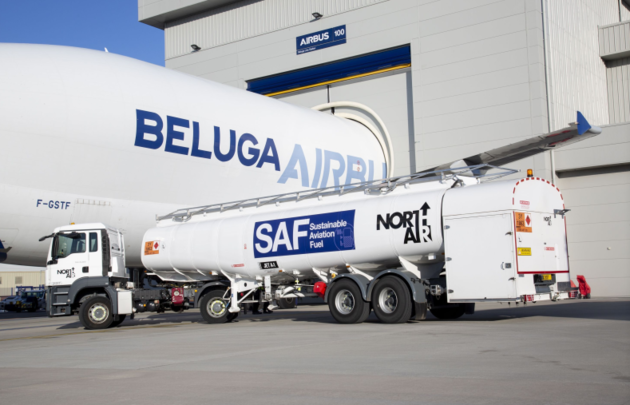
Photo/Courtesy of Airbus
After three years of the pandemic, Airbus CEO Guillaume Faury visited China again, and the Chinese market he faced was quite different.
Recently, NBD had an interview with Airbus CEO Guillaume Faury and Airbus Executive Vice President and Airbus China CEO Xu Gang (part of the content is from Faury's media meeting) to discuss how Airbus is responding to new opportunities in the Chinese market, and the role of the aviation industry in global cooperation.
NBD: What is the driving force behind the growth of the Chinese market?
Xu Gang: With the end of the pandemic and the introduction of favorable policies, the Chinese aviation market has seen a turning point. I am very confident that Airbus will continue to lead the Chinese market in the future.
The main problem we face now is the small market share of cargo aircraft. As of the end of February, the number of Airbus civilian aircraft in service in mainland China reached 2,127, accounting for about 54% of the total market share. However, cargo aircraft only accounted for 2%.
But we now have A321P2F passenger-to-freight conversion, A330P2F passenger-to-freight conversion solutions, and the recently launched A350F cargo aircraft. Many airlines are very interested in Airbus cargo aircraft because these aircraft bring them new and competitive solutions.
NBD: China's C919 under COMAC has accumulated thousands of orders. How do you view the market prospects of this model?
Guillaume Faury: The C919 is about to be put into operation, but we have not yet flown on this aircraft as passengers, so we cannot give an evaluation of this product. Is too early to draw conclusions about COMAC as a newcomer, but we will respect any competitors in the market. We will continue to promote our products and strive to provide the best products and resources for Chinese and global airlines. Our research and development center in Suzhou will be put into operation, which shows that Airbus hopes to take the lead in the market.
NBD: In the field of low-carbon aviation, what cooperation opportunities will Airbus have with Chinese companies and government agencies?
Guillaume Faury: Recently, we signed an agreement with China National Aviation Fuel Group to produce and use more sustainable aviation fuels. At the same time, we are investing in aircraft lifecycle management. So overall, our sustainable development with Chinese partners covers all aspects of the aviation industry.
Xu Gang: China's policy is clear, supportive and consistent. Secondly, China has sufficient catering waste oil that can be used as raw materials for sustainable aviation fuels to achieve mass production of this clean fuel. Besides, China's annual hydrogen production capacity has reached 33 million tons, making it the world's largest hydrogen production country.


 川公网安备 51019002001991号
川公网安备 51019002001991号





